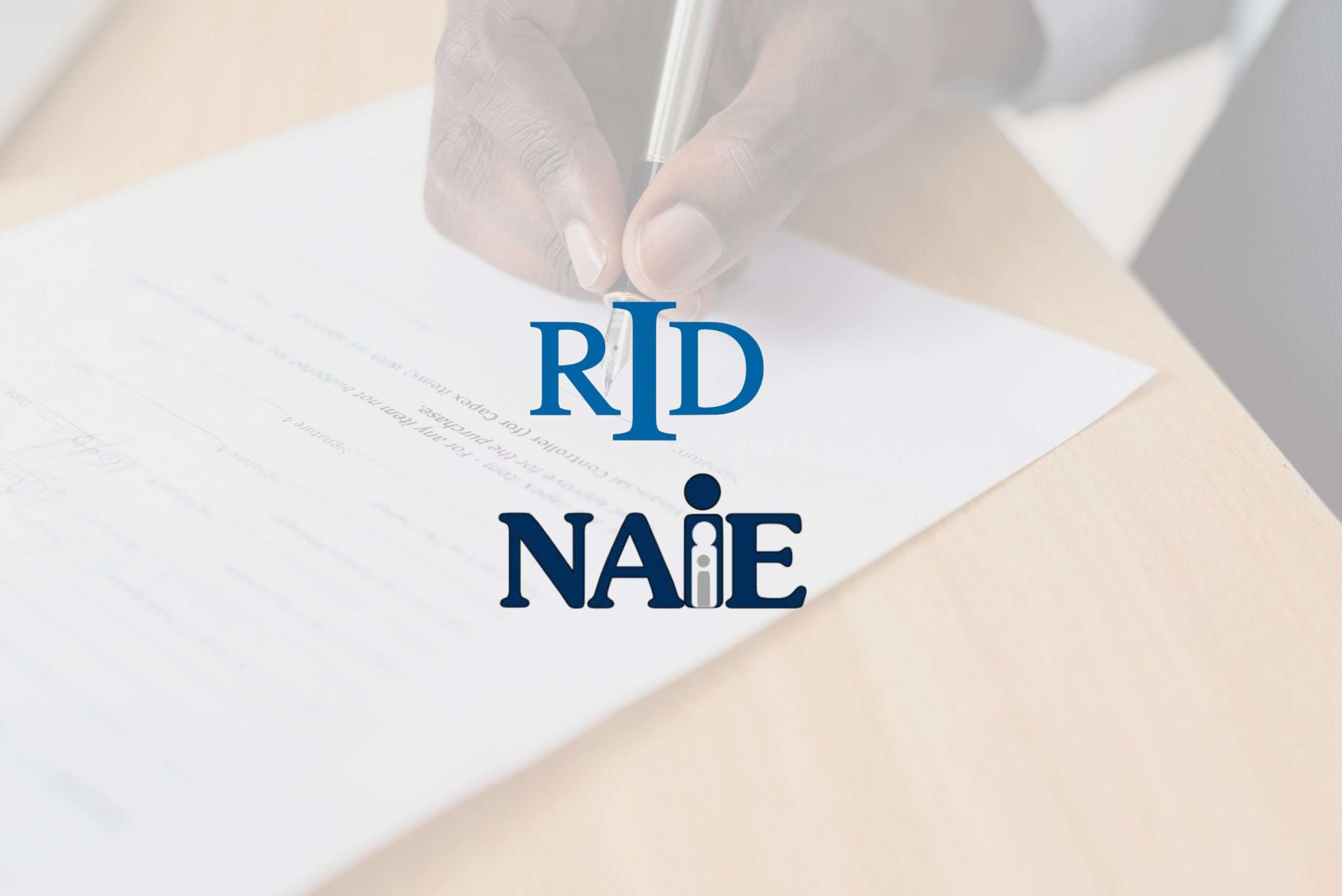RID/NAIE Joint Position Statement on Perez v. Sturgis County Schools System
The Supreme Court of the United States issued a unanimous opinion on the matter of Perez v. Sturgis County School System on March 21, 2023. The opinion, issued in favor of Miguel Luna Perez, supported his counsel’s assertion that public schools can be sued under the Americans with Disabilities Act (ADA) for monetary relief regarding their demonstrated failure to furnish Mr. Perez with qualified interpreters, therefore failing to satisfy the District’s legal mandate of providing a free and appropriate public education. This ruling affirms that students with disabilities do not need to exhaust administrative procedures to obtain due relief under the Individuals with Disabilities Education Act (IDEA), which is a federal law regulating special education in public schools.
Much like Mr. Perez, the Deaf community in the United States and worldwide suffers from an epidemic of language deprivation. A significant contributor to this crisis is the lack of access to language and appropriate models for Deaf children’s language acquisition. Adults in educational settings are responsible for modeling language for the students. Therefore, the Registry of Interpreters for the Deaf (RID) and the National Association of Interpreters in Education (NAIE) recognize and support Deaf children’s right to qualified, effective, certified, or credentialed sign language interpreters in all settings; especially education.
Interpreting in educational settings requires highly specialized, advanced skills as well as knowledge of American Sign Language, English, interpreting, and education in order to promote a free and appropriate public education for Deaf children. Educational interpreting is not and should never be considered an entry-level position, nor should it be relegated to novice interpreters or paraprofessionals without the appropriate training and specialized skills and abilities needed to interpret effectively for Deaf children. It is the responsibility of interpreting programs in colleges and universities to ensure that interpreters are adequately prepared to work in educational settings. These programs must recognize educational interpreting as a specialized and advanced realm and represent it as such to their students. By doing so, they can help cultivate a workforce of interpreters well-equipped to handle the unique challenges and demands of interpreting in educational settings.
Interpreters who are not qualified to interpret in these settings but who do so anyway violate both RID’s Code of Professional Conduct and NAIE’s Educational Interpreter Code of Ethics, perpetuating harm to Deaf consumers. When educational institutions do not provide effective, qualified, certified, or credentialed sign language interpreters, they perpetuate harm to Deaf children. These actions violate one of the central tenets of ethical practice: Do no harm.
In order to have effective, qualified interpreters for Deaf children’s education and beyond in the United States, all 50 states should regulate standards for educational interpreters in the K-12 setting. Holding school districts and educational interpreters accountable to high-performance standards and ethical decision-making in all settings will lessen the harm done to Deaf consumers. NAIE has published guidelines with recommended standards for minimum qualifications for educational interpreters.
In educational settings, related service providers such as speech therapists and occupational therapists are typically required to have some form of credentialing. The same should be true for individuals who provide communication access that impacts the safety, health, and welfare of Deaf students. The school district is responsible for ensuring that educational interpreters are credentialed and equipped to provide this access as part of the child’s free and appropriate public education. The recent Supreme Court decision resulted from the school district’s failure to fulfill this responsibility.
NAIE and RID also support and encourage the use of certified or credentialed Deaf Interpreters who have specialized skills in working with Deaf children in educational settings and who are native users of American Sign Language. Deaf Interpreters can be vital members of the educational team, modeling native ASL and cultural competency for Deaf children and maximizing the educational, psychological, cognitive, and social-emotional benefits received from interpreting services.
Included Links:
NAD’s Position Statement on Inclusion: https://www.nad.org/about-us/position-statements/position-statement-on-inclusion/
NAIE’s Code of Ethics: https://naiedu.org/codeofethics/
NAIE’s Professional Guidelines for Interpreting in Educational Settings: https://naiedu.org/guidelines/
RID’s Standard Practice Paper on K-12 Educational Interpreting is outdated. A new RID Professional Practice Paper is slated for publication on RID.org in the near future.

